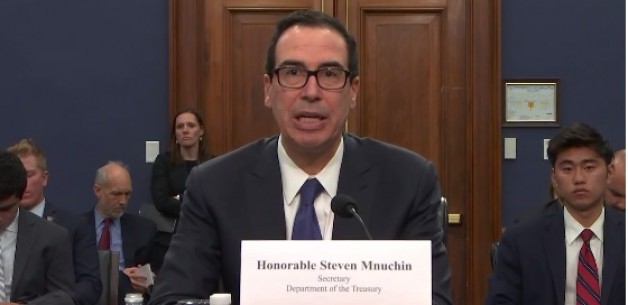Yesterday, Secretary Mnuchin made his first trip to the Hill to defend the White House budget request for Treasury’s international programs. The World Bank was a key focus of the hearing, in which lawmakers questioned how cuts to IDA—the World Bank’s arm for the poorest countries—could have significant implications for America’s leadership position on the international stage as well as its national security. The main takeaways from the hearing include:
Lawmakers on both sides of the aisle are skeptical that cuts to foreign assistance, including the U.S. commitment to IDA, support national security
In response to a question from Rep. Ruppersberger (D-MD) on World Bank spending in fragile and conflict-affected states, Secretary Mnuchin stated that, “We do appreciate where IDA is making these commitments,” stressing that the “difficult cuts” are an effort to “fund the military to its proper level.”
Both Reps. Ruppersberger and Fortenberry (R-NE), pressed the Secretary on how a budget that redistributes foreign assistance spending in order to provide greater support for the military could be consistent with statements from General Mattis, the current Secretary of Defense, who has cautioned such cuts can be damaging to U.S. national security. Rep. Fortenberry pointed out that General Mattis had stated a cut in multilateral assistance would result in even more spending on military capacity, and ends up “hollowing out the very things that build up conditions for international stability.”
Both Treasury and Congress see U.S. leadership at the IFIs–particularly vis-à-vis China–as important
Ranking Member Nita Lowey (D-NY) in her opening statement suggested U.S. leadership “has steered the international development agenda,” and that the FY18 budget “would undermine our influence by slashing contributions to international financial institutions.”
Pushed further by Rep. Ruppersberger on how a “pull back” by the U.S. and “statements made by the President on our allies since World War II” could “weaken the west” and allow Russia and China to “step in,” the Secretary stated, “We’re not looking in any way to pull back from our leadership position on very important issues.”
The new administration sees IDA as a priority within the larger foreign assistance budget
Mnuchin went on to say that, “in IDA where we’ve cut back some of the commitments, we are still proposing over $1.1 billion in current spending to IDA, which will make us the #1 or #2 person in IDA.” As the skinny budget indicated in March, the full White House budget cut back new commitments to the MDBs by $650 million over three years—reducing the amount put forward by the previous administration by about 15% (as opposed to the 30%+ cuts to other foreign assistance accounts). “We’ve tried to maintain really the important issues,” said Mnuchin. “We’ve scaled back the Asian Development Fund and we’ve scaled back some others, but again we’ve tried to be very clear in where we’re dedicating our resources that can be most effective in the context of the budget.”
A full video of the hearing can be found here.

